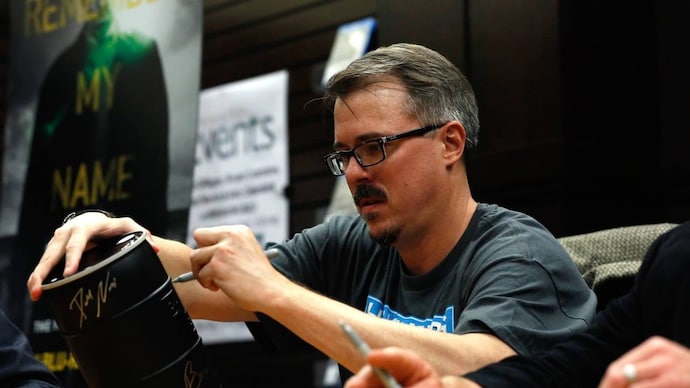Breaking Bad creator calls AI a plagiarism machine, says techies are selling vapor to become billionaires
Vince Gilligan openly condemns artificial intelligence as a plagiarism machine and refuses to use it in his work. Their criticism highlights concerns over the impact of AI on creativity and ethical challenges in the tech industry.

Breaking Bad mastermind Vince Gilligan has declared war on artificial intelligence, branding it a “plagiarism machine” and vowing to never use it in his work. In true Gilligan fashion, the Emmy-winning author didn’t hold back, calling AI “the world’s most expensive and energy-intensive plagiarism machine” and accusing Silicon Valley billionaires of selling “a bag of vapor” in the race to become trillionaires. The creator’s fiery comments come as he’s promoting his upcoming Apple TV+ series Pluribus, a sci-fi drama stamped with the cheeky, defiant end-credits message: “This show was created by humans.”
This line is not just a quip; This is a statement. “I hate AI,” he told Variety. He also said that he is convinced that this technology is being over-sold by the super-rich. “It’s basically a bunch of billionaires whose biggest goal in life is to become the world’s first trillionaire. I think they’re selling a bag of vapor.” At a time when AI-generated scripts, deepfake actors and machine-written dialogue are on the rise in Hollywood, Gilligan’s new show doubles as both entertainment and protest. This is not the first time Hollywood has stood against AI. For artists, it is not just limited to job scare but is also a threat to the creative industries.
AI is an industry-sized shortcut
Gilligan’s disdain for AI isn’t just philosophical, it’s deeply personal. He sees it as an industry-shaping shortcut that mistakes imitation for fiction. “People say AI will replace artists,” he scoffs. “My toaster oven is suddenly not Thomas Keller because it heats a delicious pizza for me.”
But he is also worried about what will happen next. Beyond fears of job loss or creative dilution, the author warned about the so-called “singularity,” the point when AI could develop true consciousness. Gilligan argued that if this ever happened, society would have to rethink the concept of slavery. “If they ever come to their senses, the whole discussion of slavery will have to come to the forefront of the conversation again,” he said, wondering aloud whether “Silicon Valley assholes” will try to monetize sentient machines for profit.
He also expressed less confidence in regulators to rein in the power of technology, predicting that the US would fail to establish meaningful oversight because of its economic rivalry with China. “We will be very busy trying to move forward,” he said.
For Gilligan, the problem is not just what AI can do, but what it is taking away. He argues that storytelling, art and performance derive their power from human imperfection, something that no algorithm can simulate, no matter how good the output.
Rhea Seehorn joins the anti-AI rebellion
Joining Gilligan in his anti-AI campaign is Better Call Saul alum Rhea Seehorn, who stars in Pluribus and isn’t mincing her words either. Responding to the recent discussion about “Tilly Norwood”, an AI-generated actress allegedly seeking agency representation, Seehorn stated candidly: “I don’t mind going on the record that I don’t think any agency should represent that AI actress. Shame on them!”
He argued that the emotional weight of art comes from lived experience, not data sets. “Even though AI can mimic Picasso’s brushwork perfectly, the reason a painting moves you is the human experience behind it,” she said.
Gilligan, never averse to colorful metaphor, compared AI-generated entertainment to “a cow ruminating, an endless cycle of nonsense”. And in a final jab at Silicon Valley, he quipped, “Thank you, Silicon Valley! Once again, you have upset the world.” The comments echo what Hollywood actress Emma Thompson said a week ago. Like other actors, Thompson also blames AI for interfering with her writing routine.
Between Pluribus’ humans-only credits and his choice of words for the tech elite, Gilligan’s message is clear: He’s not here to allow algorithms to write the future of storytelling. In a scenario where AI threatens to blur the line between creation and replication, it is staking its claim on the dirty, irreplaceable magic of being human.